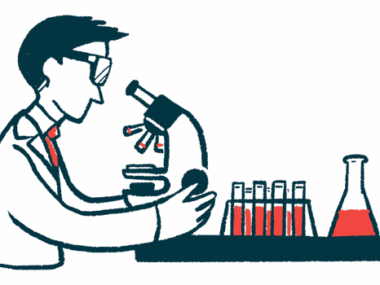Aberrant Behavior in Prader-Willi Patients Starts Declining at About Age 30, Study Suggests
Written by |

In people with Prader-Willi syndrome, the severity of aberrant behaviors declines with age, a phenomenon that starts at around age 30, according to Japanese researchers.
Food-related behaviors, however, are maintained and don’t seem to change as patients grow older.
The study, “Aberrant, autistic, and food-related behaviors in adults with Prader-Willi syndrome. The comparison between young adults and adults,” was published in the journal Research In Developmental Disabilities.
While it is known that Prader-Willi syndrome individuals tend to suffer from a wide variety of maladaptive behaviors, until now there has been “a paucity of data in regards to the developmental trajectory of problem behaviors,” researchers wrote.
Most studies are performed during childhood – when the first symptoms start to appear – but little is known about how these abnormal behaviors change over the course of adolescence and adulthood.
Researchers evaluated how age and genetic differences impact the severity of behavioral symptoms in Prader-Willi syndrome, focusing particularly on the differences between young adults (ages 18-28) and adults (ages 30-45).
The team recruited 46 Japanese patients with a confirmed diagnosis of Prader-Willi syndrome – 33 young adults and 13 adults – who underwent a comprehensive behavioral assessment related to intelligence and aberrant, autistic-like, and food-related behaviors.
Researchers used the Aberrant Behavior Checklist Japanese Version to assess abnormal behavior and the Pervasive Developmental Disorders Autism Society Japan Rating Scale to evaluate autism.
Food-related behaviors and intelligence were assessed via the Food Related Problem Questionnaire and the Japanese version of the Wechsler Intelligence Scale, respectively.
The analysis showed that young adults had more severe aberrant behaviors than adults, as shown by their statistically significant higher scores in the Aberrant Behavior Checklist Japanese Version and the Pervasive Developmental Disorders Autism Society Japan Rating Scale.
These differences between the two age groups were maintained for patients with the most common genetic defect underlying the disease, a deletion in the chromosome 15q inherited from the father.
Researchers found no significant differences between young adults and adults regarding food-related behaviors.
These results suggest that aberrant behaviors in Prader-Willi syndrome patients have a tendency to decline from age 30 onward, a phenomenon particularly evident in patients with a deletion in chromosome 15q. But changes in food-related behaviors seem independent of age, with the results suggesting no indication of diminishing with time.
“These results suggest that aberrant behaviors follow a developmental trajectory declining from around the age of thirty, while food-related behaviors follow another trajectory giving no indication of diminishing at this age,” researchers wrote.
Whether this pattern is maintained in the genetic minority of Prader-Willi syndrome patients who inherit both copies of chromosome 15 from the mother warrants further investigation.





